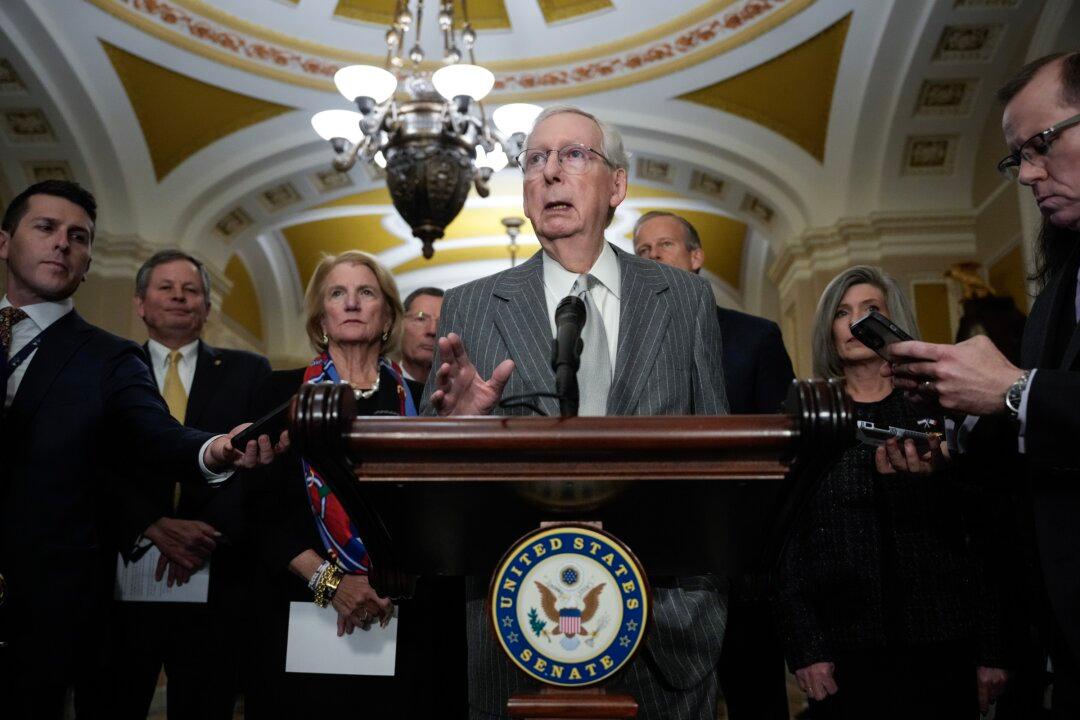Senate Minority Leader Mitch McConnell (R-Ky.) said he will continue to be a member of the Senate until his term ends, despite stepping down from the leadership post, and plans to focus on dealing with disagreements within the party.
“I’ve served longer as a leader than anybody in American history, 18 years. So look, I finally thought it was time to go in a different direction. But I’m not leaving the Senate,” Mr. McConnell said in an April 2 interview with radio personality Terry Meiners. In February, Mr. McConnell announced his intention to step down from the post of Senate GOP leader in November, a position he held for 17 years.





